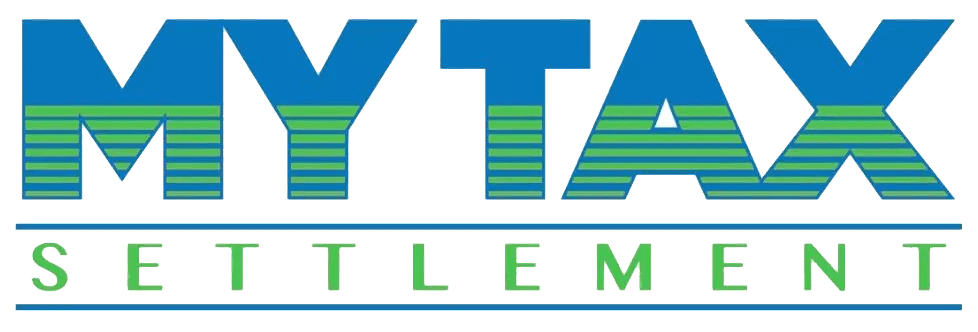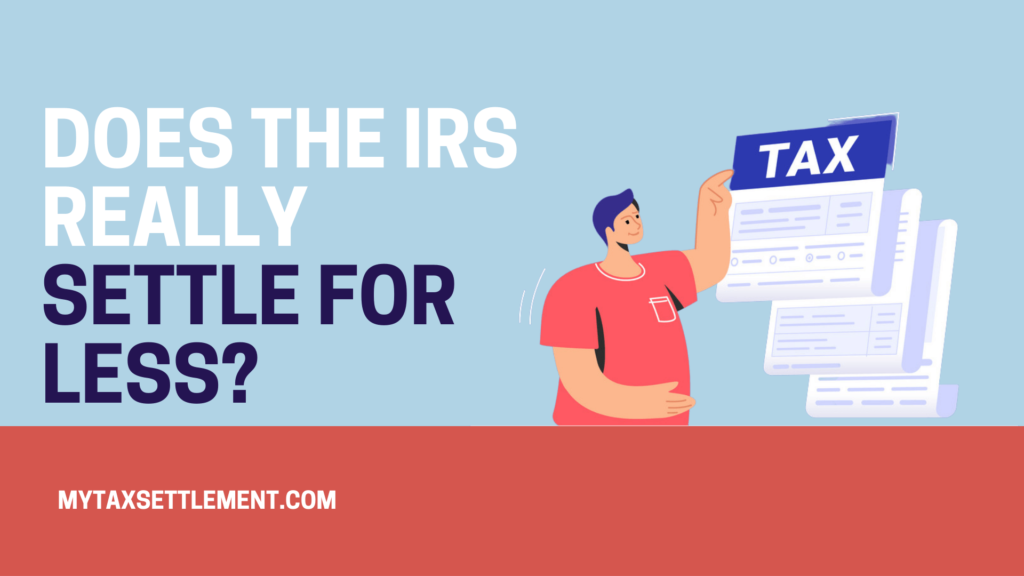What is an IRS Tax Offer in Compromise? (OIC)
An Offer in Compromise (OIC) is acknowledgement of both the Internal Revenue Service (IRS) and the owing taxpayer that the amount owed cannot be feasibly paid. The “Offer” is the amount the taxpayer can viably pay, and it is “in Compromise” – meaning, not the entire amount. It is a great tool to help taxpayers ‘settle up’ with the IRS, setting the taxpayer free from unnecessary financial stress. Taxpayers who take advantage of this tool can end up paying about 20% of the amount they owed. It can be a saving grace for taxpayers who truly need it and can prove it.

How does offer in compromise work?
When you are approved for an offer in compromise by the IRS, it means that both you and the IRS have concluded that the taxpayer is not able to pay off the outstanding taxes in their current financial situation, and that the taxpayer does not any longer have an asset that could be seized in compensation.
In an OIC, the taxpayer offers to pay the maximum amount they can afford, given the financial disposition of the taxpayer. This amount can be substantially less than the overall amount owed. If the IRS agrees to the amount, it will lower your tax debt to match the proposed amount. Once you have been approved and have agreed to the amount, your outstanding tax will be reduced to match that amount. The taxpayer will get the status of fully paid if they had paid the amount agreed upon, as outlined.
How to apply for Offer in Compromise?
(This is where My Tax Settlement comes in.) To be eligible for an IRS Offer in Compromise the taxpayer must demonstrate that collection of the tax would create an economic hardship or would be unfair and inequitable. The taxpayer must present a conclusive and comprehensive case to the IRS, including a complete and detailed financial report. And the emphasis here is on “comprehensive,” as the reason most of OIC applications are denied due to errors and omissions.
To have a chance at approval, you should seek professional assistance (hint, hint) in filing your OIC application because it is a complex and taxing (pun intended) process. With the help of a trained and experienced team, you are more likely to get your application approved than attempting to do it on your own.
Pre-Qualifiers
Taxes are quite essential for public expenses and government so there are quite strict pre-qualifiers to be eligible for tax settlement. But, before you make an offer to the IRS, you need to check your eligibility and understand what the IRS takes into account. Your first eligibility test is your reason for requesting a compromise.
IRS will only consider IRS settlement offer if you have any of the following reasons:
- There is a doubt as to whether the IRS correctly determined the amount you owe in tax debt.
- If your debt is fully collectible it means your assets and incomes are less than the amount you owe.
- The debt is correct and you are fully able to pay all debt, but doing so can cause economic hardship.
Well, if you are making an OIC based on the 2nd or 3rd reason, the IRS will take other factors into account as well. To determine whether you can pay and how much you can pay, is based on the following 4 components.
- Your ability to pay
- Your income
- Your expenses
- Your assets
What could get your offer in compromise Rejected?
There are several reasons why the IRS could reject your proposal for an offer in compromise. Some of these reasons are:
- Doubt in the liabilities shared with the IRS.
- Doubt of the fact that the taxpayer could never pay the current amount of outstanding taxes.
- You have not filed the required federal tax returns.
- You have not made the required estimated tax payments.
- You are self-employed, have employees, and have not submitted the required federal tax deposits.
To ensure that your offer in compromise does not get rejected, reach out today at 619-318-8564 or email us at [email protected].
Offer in Compromise with the FTB
The FTB may request that you try all other methods for paying off your tax debt before turning to the Offer in Compromise. The most popular technique to pay off outstanding taxes is via an installment plan, but you should also think about taking out a loan or selling assets. If you can’t come up with a method to pay and don’t see how you’ll be able to pay the entire amount in five years, you’ll have to consider making an offer in compromise.
The main advantage of the OIC is that, in most cases, it will terminate the collection procedure. The FTB will generally cancel any state tax liens on your home and cease any third-party debt collecting efforts.
Based In San Diego, We Help California Tax Payers Get the Best Chance at an Offer in Compromise
GET A FREE TAX EVALUATION HERE
More Tax Settlement Services
IRS Installment Agreement
The Internal Revenue Service (IRS) enables taxpayers to satisfy tax obligations via an installment arrangement. Because interest and charges will apply, however, the IRS encourages taxpayers to pay taxes immediately. Interest and penalties can equal 8% to 10% per year. If paying the entire tax liability at one time is not possible, an installment agreement is an alternative permitted by the IRS. The IRS has four different kinds of installment agreements: guaranteed, streamlined, partial payment, and non-streamlined. There are 4 types of Installment agreements available through the IRS: guaranteed, partial, streamlined, and non-streamlined agreement plans.
IRS Tax Penalty Abatement
The IRS can impose a huge number of tax defaulters who are either not paying taxes or not paying on time. These penalties may also include monetary fines imposed on the taxpayer. Some of the main causes for these tax penalty abatement are Failure-to-File which is imposed if you file your taxes after the deadline and Failure-to-Pay which is imposed because of a late tax return after you have filed the taxes. These penalties can be abated by the IRS if you carefully present your case. For you to successfully get your penalties waived, you must present your case to the IRS in a good faith.
IRS Tax Audit Representation
Filing your tax returns is one of your most important duties as a responsible citizen. And, in the age of TurboTax and Tax Act, many have lost touch with how much effort and detail can be put into a tax filing – which is all the more true as you earn more. To truly document your earnings in a comprehensive way, in the way that the IRS tax audit experts you to, you inevitably have to present a complex picture. And, when doing that, there are ample opportunities to get something wrong – and miscalculations in one place can lead to miscalculations elsewhere.
Stop Wage Garnishment
Every income-making citizen has to make regular tax payments to the government corresponding to their earnings. If a person stops paying their taxes for some reason, the Internal Revenue System (IRS) is within their rights to take action against that person and try to get what they are owed to the State. One of those ways is through wage garnishment, a forceful seizure of part or all of your wages when you are paid by your employer. You can stop a wage garnishment by hiring My tax settlement professionals. Here are a few of the best ways to stop wage garnishment:…
Payroll Tax Debt Relief
The Internal Revenue System (IRS) is taken with the duty of ensuring that each citizen pays the tax they owe to the government regularly and without delay. It includes the payroll tax debt by the business owners. If a person does not pay one of the taxes, they are to be held accountable by the IRS and may be given a severe penalty if the condition demands. Payroll tax debt is quite common for business owners. Payroll deductions are the total amount of tax deducted from each salary of their employees and remitted to the IRS. The business owner must pay the amount regularly.



